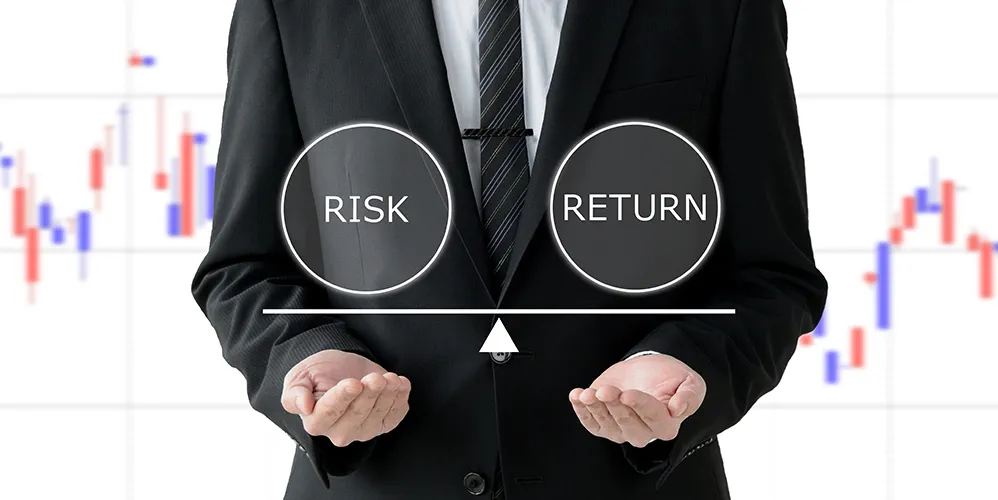
Demat Account vs Trading Account: Key Differences
24 Aug 2023

Table of Content
-
What is A Demat Account and A Trading Account?
-
Demat Account vs Trading Account
-
How to Open Demat and Trading Accounts?
-
The Difference in the Charges of Demat account and Trading account
-
The Role of Trading Account and Demat Account
-
Can you open a Demat account without having a Trading account or vice versa?
-
Conclusion
-
FAQs on Demat Account vs Trading Account
Most investors often come across the terms ‘Demat account’ and ‘Trading account’ and use them interchangeably. These accounts are essential for participating in share trading and investments and are considered largely similar. However, they serve different purposes. Understanding the difference between demat and trading accounts is crucial for investors to effectively manage their securities. Let us understand the difference between demat and trading accounts and determine their purposes.
What is A Demat Account and A Trading Account?
Let us discuss what is a demat account and a trading account and what are the primary differences between them.
What is a Demat Account?
A demat account is short for a 'Dematerialised' account. It is an electronic account that holds securities, such as shares, bonds, mutual funds and other financial instruments, in a digital format. After the advent of digitalisation, all the physical share certificates were dematerialised and stored in the demat account. This eliminated the need for physical share certificates and allowed investors to buy, sell and hold securities in an electronic form.
What is a Trading Account?
A trading account is an online account that facilitates the buying and selling of securities in the stock market. It acts as an interface between the investor and the stock exchanges, enabling the execution of trade orders. A trading account is linked to a demat account to transfer shares during buying or selling transactions.
Demat Account vs Trading Account
Here’s a comparative analysis of demat vs trading accounts to understand what is the difference between a demat and a trading account:
| Parameters | Demat Account | Trading Account |
|---|---|---|
| Purpose | A demat account is primarily used for holding and storing securities in electronic form. It ensures the safekeeping and easy transfer of securities. | A trading account is used for executing buy and sell orders in the stock market. |
| Functionality | A demat account enables the transfer and settlement of securities. | A trading account facilitates the actual trading of securities by placing buy or sell orders. |
| Transactions | A demat account records the holdings and movements of securities. | A trading account records the buying and selling transactions. |
| Interface | A demat account is accessed through the online portal or mobile application provided by the Depository Participant (DP). | A trading account is accessed through the online trading platform provided by the broker. |
| Identification | Demat account has a unique demat account number that is used to uniquely identify your account. | A trading account has a unique trading account number that is used when you trade in the stock market. |
| Time Factor | The demat account shows your stocks at a specific point in time like the end of the financial year. | The trading account shows your transactions over a while. |
How to Open Demat and Trading Accounts?
Many people often wonder how to open demat account and trading account, and whether they should be opened separately. Investors and traders can open a demat and trading account by following these simple steps:
- Choose a reputable broker or financial institution that offers demat and trading account services.
- Fill out the account opening form, providing necessary details such as personal information, bank details, PAN card, Aadhaar card and photographs. You can also open the account online through their mobile application or website.
- Submit the required documents, including proof of identity, address proof, PAN card and passport-size photographs.
- Complete the KYC (Know Your Customer) process. This involves in-person verification or video verification or OTP-based verification.
- Sign the necessary agreements and declarations provided by the broker or financial institution.
- Finally, you can transfer money into your accounts and start trading.
The Difference in the Charges of Demat Account and Trading Account
As the demat account and trading accounts are different, so are their charges. Following are the different charges being levied in the demat account and trading accounts:
- Demat Account Charges: Demat account charges normally include account opening fees, annual maintenance charges (AMC), transaction charges for debiting and crediting securities, safety or custodian charges and any other charges as per the depository participant’s fee structure.
- Trading Account Charges: Trading account charges include account opening fees, brokerage charges for buying and selling securities, transaction charges levied by stock exchanges, Securities Transaction Tax (STT), Goods and Services Tax (GST), and other charges as per the broker's fee structure.
The Role of Trading Account and Demat Account
Both the demat and trading accounts have their unique roles. They are as follows:
- Demat Account: The demat account facilitates the safekeeping and electronic transfer of securities. It holds the shares and other securities in a dematerialised form and shows a clear picture of the investor's holdings. When shares are bought or sold, they are debited or credited to the demat account respectively.
- Trading Account: The trading account enables investors to place buy and sell orders in the stock market. It provides access to the stock exchanges and various trading platforms. It allows investors and traders to monitor market movements, analyse stocks and executes trades.
Can You Open a Demat Account Without Having a Trading Account or Vice Versa?
Yes. It is possible to open a demat account without having a trading account. However, this limits the functionality of the demat account. A standalone demat account allows investors to hold securities but does not provide the means to trade them. On the other hand, it is not possible to open a trading account without a linked demat account because the transfer of shares is essential for trading transactions.
For instance, if a trader only wants to trade in futures and options, they do not require a demat account. Furthermore, if an investor has applied for an Initial Public Offering (IPO) and only wants to hold the shares for a while, then a trading account will not be required. However, when a trader or investor wants to trade in equities, they will compulsorily require both demat and trading accounts.
Conclusion
Understanding the difference between demat and trading accounts is crucial for investors and traders who are active in the stock market. While the demat account holds securities in an electronic format, the trading account facilitates buying and selling transactions of those securities. Opening both accounts is a recommended action for active trading and seamless management of securities. It is important to consider the charges, roles, and functionalities of these accounts when venturing into the stock market.
You should open both a demat and trading account with a common broker and enjoy uninterrupted service. Bank of Baroda provides the facility to open low-cost demat and trading accounts with a seamless trading and investing experience. Moreover, the costs associated with opening and maintaining the demat and trading accounts are quite low. Start your trading and investing journey with the Bank of Baroda today.
FAQs on Demat Account vs Trading Account
Q: Do I need both demat and trading accounts?
A: It depends upon the level of transactions you wish to undertake. If you wish to actively participate in the stock market, it is recommended to have both a demat account and a trading account. While the demat account holds your securities in a dematerialised form, the trading account allows you to buy and sell your securities.
Q: Who can apply for demat and trading accounts?
A: Any person who wishes to invest or execute the trade in the stock market can apply for opening the demat and trading accounts. These normally include individuals, resident Indians, NRIs, HUFs (Hindu Undivided Families) and corporate entities.
Q: Is a demat account different from a trading account?
A: Yes. A demat account and a trading account are both different and they serve different purposes. A demat account holds your securities electronically and acts as a repository. While a trading account enables buying and selling of securities in the stock market.
Q: Is it mandatory to add a nominee while opening a demat or trading account?
A: Opting-in/ Opting-out of nomination is mandatory in Demat Account. But it is always advisable to add a nominee to the demat and trading accounts for succession planning. This will ensure the smooth transfer of assets in case of unforeseen circumstances. Otherwise, your heirs and legal representatives will face difficulties in claiming your securities.
Popular Articles
Guide to Getting Agriculture Loan: Application, Eligibility & Required Documents
Related Articles










-
Disclaimer
The contents of this article/infographic/picture/video are meant solely for information purposes and do not necessarily reflect the views of Bank of Baroda. The contents are generic in nature and for informational purposes only. It is not a substitute for specific advice in your own circumstances. Bank of Baroda and/ or its Affiliates and its subsidiaries make no representation as to the accuracy; completeness or reliability of any information contained herein or otherwise provided and hereby disclaim any liability with regard to the same. The information is subject to updation, completion, revision, verification and amendment and the same may change materially. The information is not intended for distribution or use by any person in any jurisdiction where such distribution or use would be contrary to law or regulation or would subject Bank of Baroda or its affiliates to any licensing or registration requirements. Bank of Baroda shall not be responsible for any direct/indirect loss or liability incurred by the reader for taking any financial decisions based on the contents and information mentioned. Please consult your financial advisor before making any financial decision.
All about Demat Account Charges & Ways to Reduce Them
Trading and investing in the share market are gaining momentum among Indian investors. While there can be huge gains by investing in the share market, it also comes with certain associated costs. For trading or investing in the share market, you first need to open a demat account with a stockbroker.
What are the Benefits of Demat Account?
In 1997, the Indian stock exchanges transitioned to using Demat accounts. Before this, stock and share transactions had to be recorded on paper and completed in person using actual stock certificates.

